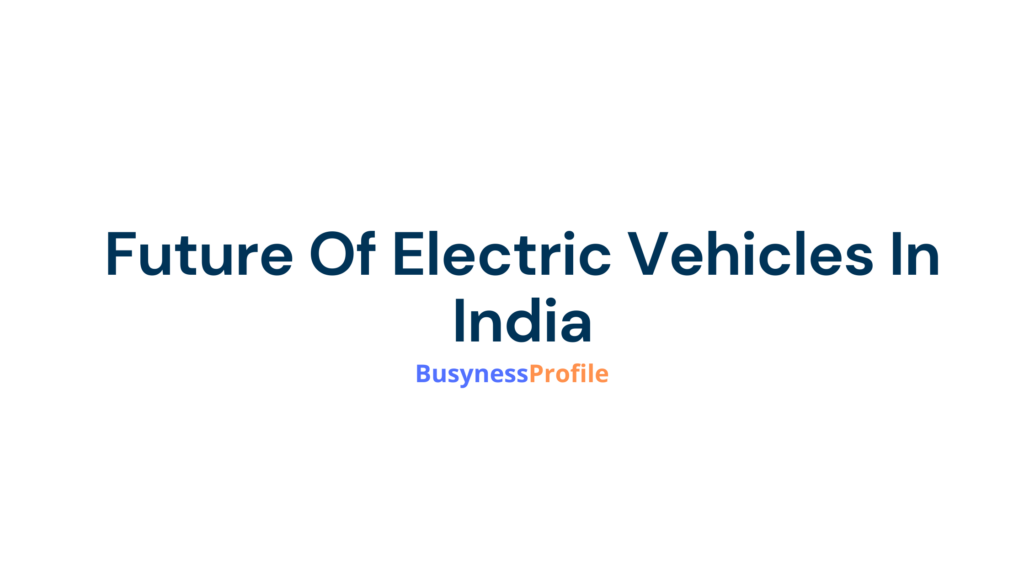Future Of Electric Vehicles In India

Future Of Electric Vehicles In India
India is witnessing a significant impact on the environment with pollution. According to the latest Climate Risk Index 2020, India is in 5th ranking, making it vulnerable to climatic changes. This has led to the rise of e-mobility for avoiding the use of petrol or diesel, which produces pollution.
To alleviate the environmental issues, the Indian government started the promotion of electric vehicles. This resolution to reduce pollution and evolve the transport and mobility sector has already taken its boost, promising the emerging future of electric vehicles in India. However, a recent Castrol survey has reported that new car owners won’t opt for electric cars until 2030 due to several factors like proper infrastructure.
No matter the pros and cons of using an electric vehicle, Indian roads will witness the use of around 100 million EVs by the year 2030. So, let’s talk about the reasons for the future of electric vehicles in India and their challenges and opportunities for better understanding.
EVs In India: Reasons For Future Growth
- Market Share
With the increased manufacturing of EVs, the market share is expected to rise significantly. By 2022, India’s GDP will grow by an astonishing 25%. Moreover, the use of EVs will lower the import of petroleum by $60 billion by 2030 as 82% of the oil demand is fulfilled by imports in India.
2. Fuel Price
The fuel price for electric vehicles will be as low as Rs. 1.1 per kilometer. So, you will incur a reduced amount of overall petrol cost for traveling every km by an EV. It will also reduce vehicular emissions, resulting in a better and brighter future for electric vehicles in India by 2021.
3. Campaigns For Adoption
The campaigns for adopting the EVs will play a significant role in its big hit in the upcoming years. Some campaign promises that adds significantly to the EVs future growth are:
- Loans of Rs. 1.5 Lakhs exemption to buy any EV.
- Phased manufacturing program (PMP) for five years until 2024.
- GST amount will be reduced to 5% when compared to regular vehicles, which is 28%.
- Importing EV spare parts with the custom-duty exemption.
EVs In India: Challenges And Opportunities
Challenges:
- The lack of ample battery charging stations or EV repair centers and even proper EV manufacturing units in India are one of the biggest challenges faced in its future growth.
- The vehicle longevity becomes less in India due to the poor road condition everywhere.
Opportunities:
- The lower operational cost with 75-80% reduction in the fuel prices.
- Lesser maintenance expenses.
- Significant reduction in air pollution with no emissions.
Final Thoughts
The evolution from one technology to another is always a challenging path. However, the powerful drive to boost the growth of EVs by the Government of India and automobile companies ensures the broader use of it in the future.
Rakesh Reddy is a SEO web marketer, with experience of managing global website customization and maintenance. His background in Market research, content marketing, competitive research, brand strategy, and account management. Worked as Digital Marketing and SEO Specialist in Picsart Inc (Bangalore), Neil Patel Digital India (Bangalore), Digicliff solutions (Bangalore), and Nikulsan Digital Agency (Bangalore)